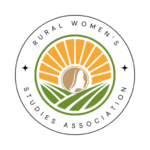Announcing our latest endeavor – our RWSA virtual programs! At our 2024 Conference, Allison Mitchell and Elyssa Ford graciously agreed to become the founding members of our virtual programming committee, and they are excited to announce a slate of upcoming events.

There will be a monthly crafting hour and quarterly programs. Please see the descriptions below for more information. We will be sending out more focused calls for participants for the January and April events in the coming months. In the meantime, we hope to see some of you at the monthly virtual crafting hour!
Monthly Social Hour: Virtual Crafting, 3rd Tuesdays, 7-8pm (central time in the USA; daylight savings time)
- Join fellow RWSA members for a social hour of crafting. Bring any project you are working on (pottery, knitting, jewelry making, quilting, etc.) and chat with folks. This is a great opportunity to connect with other members in a relaxing environment.
- Dates: July 16th, August 20th, September 17th, October 15th, November 19th, December 17th
- Contact Elyssa Ford (ebford at nwmissouri.edu) or Allison Mitchell (allimitch04 at gmail.com) for the Zoom link to join this event!
Annual Virtual Programming
October – Talking in Conversation: Bringing Academics and Professionals Together
- RWSA aims to encourage research, promote existing and forthcoming scholarship, and establish and maintain links with contemporary farm and rural women’s organizations. In support of the latter, RWSA is launching an annual virtual program where we invite academics and working professionals in the field to come together and talk in conversation in a virtual program.
- The first iteration of this new virtual programming session will take place in October 2024, and all RWSA members are invited to join the session and participate in an engaging dialogue. For information about this event will be posted on social media and included in the next RWSA newsletter.
January – Annual Recent Book Discussion
- Did you have a book published in 2024? RWSA is putting out a call for participants in a virtual recent book discussion. This is a great opportunity to promote your work to RWSA members and discuss your work alongside other recent scholarship. To be considered, there will be a call for participants who will be asked to submit the URL to their book information (ie, press website) and a short bio statement or 1 pg CV by November 1st 2024.
- The first iteration of the virtual book discussion will take place in January 2025, and all RWSA members are invited to join the session and participate in an engaging dialogue. The formal call for participants will be forthcoming in future months.
April – Rural Women beyond North America
- RWSA would like to highlight the work of its members located outside of North America. To be considered, RWSA members working outside of North America who would like to share their current projects on rural women, will be asked to submit a proposal by February 01, 2024. Proposals should include a 250 word abstract of the project and a short bio or 1 page CV. The selection committee especially wants to encourage submissions from RWSA members who were not able to participate in the 2024 conference.
- The first iteration of this new virtual programming session will take place in April 2025, and all RWSA members are invited to join the presentation and participate in the discussion. The formal call for participants will be forthcoming in future months.
July – Professional Tips & Tricks
- This virtual program, offered annually in July, will provide participants with tips & tricks to help RWSA members promote themselves and their work. The first iteration of this new virtual programming session will take place in July 2025, and all RWSA members are invited to join the presentation and participate in the discussion.
- Possible topics may include:
- Writing for (and speaking to) different audiences
- Creating an edited collection
- Editing a special issue for a journal
- Working with a trade press
- How to promote your book…and yourself!
We hope you can join us at these new programs as we work to build our RWSA community and make our organization useful for our members. If you have other ideas for programming, comment below, or share them directly with Elyssa and Allison.

